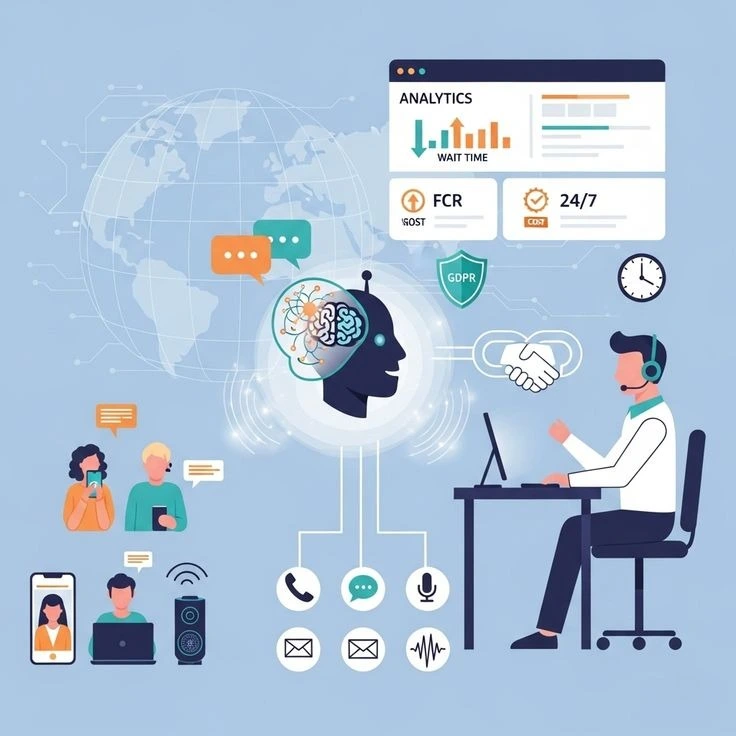Technology is the heartbeat of modern business. It fuels efficiency, accuracy, and growth across industries. Yet in tourism — one of the most dynamic, emotional, and experience-driven markets — many companies still hesitate to embrace it.
You’ll often hear familiar refrains:
“We’ve always worked this way.”
“It’s too complicated.”
“Our clients prefer personal contact, not platforms.”
Behind these words hides something deeper than reluctance — it’s fear.
Fear of change. Fear of losing control. Fear of becoming irrelevant in a world they no longer understand.
But here’s the truth: technology doesn’t replace people — it empowers them.
The right tools don’t strip away the human touch; they strengthen it.
So why does this fear persist? Where does it come from, and how can it be dismantled?
Let’s dig deeper into the psychology of this hesitation and explore how Travacco transforms technology from something intimidating into something truly intuitive and helpful.

1. The Root of Fear: The Myth That “Technology Is Hard”
For decades, tourism has thrived on trust and personal connection.
Agents built relationships, remembered birthdays, handled emergencies, and made clients feel cared for. The “system” was simple: people talking to people.
Then, technology entered the scene — with dashboards, CRMs, APIs, and endless login screens. Suddenly, what was once a human conversation turned into data entry.
It’s no wonder that many saw technology as cold, mechanical, and alien.
The myth that “technology is hard” became a cultural truth across the industry.
But the problem isn’t technology itself — it’s how it’s designed and introduced.
When tools are created for engineers, not for travel professionals, they alienate the very people they’re supposed to help.
Good technology should feel natural, not instructional. It should guide, not overwhelm.
If you need a 30-page manual just to process a booking, something’s wrong — and it’s not with you.
2. Old Habits: The “I’ll Write It Down Myself” Mindset
Visit a traditional travel agency today, and you might still see a familiar scene:
sticky notes on monitors, spreadsheets full of half-updated bookings, and endless email threads organizing tours.
This workflow feels safe. There’s comfort in routine.
Many believe that manual work means control — that typing every number and checking every line is “safer” than trusting a system.
But here’s the irony: manual doesn’t mean accurate.
In fact, it’s the opposite. Manual systems are slow, inconsistent, and prone to human error.
And let’s be honest: the world has moved on. Travelers today book a flight in under 60 seconds. If a company still operates on spreadsheets, it’s not “traditional” — it’s invisible.
The tourism industry is fast, emotional, and highly competitive. Every delayed response or lost email is a potential lost sale. In a market where time equals trust, old habits don’t just hold you back — they quietly cost you customers.

3. The Role of Bad Experiences
Let’s be fair — the fear of technology didn’t come from nowhere.
Many travel companies have been burned by it before.
They’ve invested in complicated systems that promised to “change everything,”
but instead created more chaos.
Interfaces cluttered with jargon. Features nobody uses.
Ten steps to make one booking. Endless support tickets.
After experiences like that, who wouldn’t say, “We’ll just stick to our way”?
But this fear is not of technology itself — it’s of bad technology.
People don’t hate digital tools; they hate wasting time trying to figure them out.
That’s why simplicity isn’t a luxury — it’s a necessity.
And that’s exactly where Travacco shines. It was built on the belief that technology should be easy, beautiful, and empowering — not a riddle to solve.
With Travacco, there’s no steep learning curve, no confusing menus, no hours of onboarding. Just smooth, intuitive workflows that let travel professionals focus on what truly matters: serving travelers.
4. The Cost of Fear: Missed Opportunities and Lost Momentum
Let’s be blunt — avoiding technology isn’t “staying safe.” It’s standing still while everyone else moves forward.
Modern travelers compare, book, and share experiences instantly. If your company still relies on “call us to confirm,” you’re not offering personal service — you’re offering delay.
The consequences are real:
- Lost time: Manual processes slow down every department.
- Increased errors: Human oversight leads to duplicate bookings, incorrect pricing, or missed details.
- Lack of visibility: Without analytics, decisions rely on instinct, not insight.
- Brand invisibility: If you’re not digital, you don’t exist in your customer’s world.
Meanwhile, your competitors — the ones who embraced automation — are capturing the very market you’re losing.
5. Overcoming Fear Through Simplicity

The antidote to fear is not force. It’s simplicity.
Travel companies don’t need more software — they need better-designed software.
That’s the core philosophy of Travacco.
It strips away the noise and keeps what really matters: functionality that feels effortless.
- User-first design. No technical background needed — it just makes sense.
- Unified control. Bookings, clients, invoices, and analytics in one dashboard.
- Real-time insight. Data updates instantly, empowering smarter decisions.
- Automation that saves time. Reports, follow-ups, and reminders happen automatically.
Travacco doesn’t ask you to adapt to technology — it adapts to you.
The result? Teams stop fearing the system and start trusting it.
6. Shifting the Mindset: Technology as a Partner, Not a Threat
Mindset is everything.
If leadership treats technology as a burden, employees will mirror that attitude. But when leaders embrace it with confidence, it spreads through the organization like wildfire.
Technology doesn’t replace human judgment — it amplifies it.
When routine tasks are automated, travel professionals get their creativity back. They have time to build stronger partnerships, design better travel experiences, and focus on strategy rather than spreadsheets.
A travel consultant freed from repetitive admin is not less human — they’re more human.
They get to spend their time listening, advising, and inspiring — exactly what customers value most.
7. Practical Steps to Reduce Tech Fear
Here’s how travel companies can start making peace with technology:
- Start small. Introduce one system or one feature — test, learn, and expand.
- Involve the team. Change succeeds when people feel ownership, not obligation.
- Make learning experiential. Replace theoretical training with hands-on guidance.
- Ensure constant support. A responsive help desk (like Travacco’s) turns fear into trust.
- Measure success. Show clear results — time saved, errors reduced, satisfaction improved.
Each small win builds confidence. And confidence replaces fear faster than any manual ever could.
8. Looking Forward: The Future Belongs to the Brave
Tourism has always been about emotion — excitement, curiosity, discovery.
Technology doesn’t destroy those feelings; it enables them at scale.
Imagine a travel business where every client receives personalized offers instantly, where reports generate themselves, and where staff spend time crafting experiences instead of chasing spreadsheets.
That’s not science fiction — that’s smart integration.
Travacco is built for this future — a bridge between tradition and innovation. It keeps the warmth of human service while removing the friction of outdated systems.
The companies that embrace this shift today will shape tomorrow’s travel landscape.
Those that don’t will fade quietly into the background.
Conclusion
Fear of technology isn’t a flaw — it’s habit.
But habits evolve when innovation feels natural.
Travacco gives travel companies the confidence to modernize without losing their identity.
It replaces chaos with clarity, hesitation with progress, and fear with empowerment.
Technology is no longer the enemy.
It’s your smartest partner — and your most loyal ally in growth.
